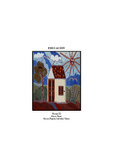| dc.rights.license | http://creativecommons.org/licenses/by-nc-sa/3.0/ve/ | |
| dc.contributor.author | Egáñez de Carrero, Denisse | |
| dc.date.accessioned | 2017-07-21T17:58:17Z | |
| dc.date.available | 2017-07-21T17:58:17Z | |
| dc.date.issued | 2016-07 | |
| dc.identifier.issn | 1316-7790 | |
| dc.identifier.uri | http://www.saber.ula.ve/handle/123456789/43636 | |
| dc.description.abstract | La fi losofía como un proceso refl exivo de la cotidianidad de la
vida en torno a las vivencias experimentadas se incluye en la educación
preescolar, ya que éste es un escenario donde los niños/as comparten
opiniones, interacciones y experiencias ocurridas en el hogar, comunidad
y escuela, al realizar refl exiones a partir de las cuales el docente
de aula puede diseñar estrategias que favorezcan los procesos de pensamiento
superior al hacerlos conscientes, a través de la práctica vivenciada.
El objetivo de la investigación está dirigido a desarrollar en
el niño de edad preescolar procesos de pensamiento de orden superior
(lenguaje, análisis, síntesis, percepción, observación) y a favorecer interacciones
e interrelaciones tanto con su grupo etareo como con los
adultos con los que convive. Se partió a la observación, elaboración
de un registro descriptivo, seguido de su respectivo análisis y planifi -
cación a fi n de abordar el interés de los niños/as sobre el tema de los
valores para así propiciar una mejor convivencia en el aula y el establecimiento
de acuerdos para mejorar la interacción en la misma. La
población está representada por 48 niños/as del Centro de Educación Inicial “El Corozal” preescolar perteneciente al Núcleo Escolar Rural
567, Municipio San Rafael de Carvajal, estado Trujillo. Se concluyó
que incluir estrategias de Filosofía para Niños en diferentes momentos
de la jornada diaria permite afianzar valores y desarrollar el pensamiento
crítico-refl exivo en el niño. | es_VE |
| dc.language.iso | es | es_VE |
| dc.rights | info:eu-repo/semantics/openAccess | |
| dc.subject | Filosofía para niños | es_VE |
| dc.subject | Educación preescolar | es_VE |
| dc.subject | Estrategias didácticas | es_VE |
| dc.subject | Valores | es_VE |
| dc.subject | Investigación cualitativa | es_VE |
| dc.title | Filosofia para niños. El aula como unidad de investigación filósofica en el nivel de Educación Preescolar | es_VE |
| dc.title.alternative | Philosofphy for children. The classroom as philosophical reserarch unit in prescholl education level | es_VE |
| dc.type | info:eu-repo/semantics/article | |
| dc.description.abstract1 | Philosophy as a thoughtful process from quotidian of life around
the experiences lived, is included in the pre-school education, because
it is a place where children share opinions interactions and experiences
that have occurred in their home, community and school, at the
moment of making refl ections which the teacher use to strategies to
benefi t the superior thought process by making them conscioûs through
the practice of the experience lived, to provide experiences that let the
child create changes from refl ection. The objective of the research is
aimed at developing, in the preschool child, processes of higher-order
thinking (language, analysis, synthesis, perception, observation) age
and to promote interactions and relationships with the it peers and with
adults with whom they live. From the methodological point of view, the
qualitative research through participant observation was used and the
elaboration of a descriptive record followed by its own analysis and
planning, in order to approach the interest of the children to the theme
about principles for the purpose of contributing to a better coexistence
and the establishment of agreements to improve the interaction
in the class room. The population is represented by 48 children from
the Center of Early Education “El Corozal”, pre-school that belongs
to the Rural School Core 567, San Rafael de Carvajal Municipality,
Trujillo State. As a fi nal refl ection, there were observed changes in the
children’s behavior, refl ected on their daily interaction. It was concluded that including philosophy strategies for children, at different times
of the working, day, can strengthen and develop critical, values, reflective thinking in the child. | es_VE |
| dc.description.colacion | 37-55 | es_VE |
| dc.description.email | denisse@ula.ve | es_VE |
| dc.description.frecuencia | Semestral | |
| dc.identifier.depositolegal | 199802ME291 | |
| dc.identifier.eissn | 2244-8454 | |
| dc.publisher.pais | Venezuela | es_VE |
| dc.subject.facultad | Núcleo Rafael Rangel (NURR) | es_VE |
| dc.subject.keywords | Philosophy for children | es_VE |
| dc.subject.keywords | Pre-school education | es_VE |
| dc.subject.keywords | Didactic strategies | es_VE |
| dc.subject.keywords | Principles | es_VE |
| dc.subject.keywords | Qualitative research | es_VE |
| dc.subject.publicacionelectronica | Agora Trujillo | |
| dc.subject.seccion | Agora Trujillo: Educación | es_VE |
| dc.subject.thematiccategory | Artes y Humanidades | es_VE |
| dc.subject.tipo | Revistas | es_VE |
| dc.type.media | Texto | es_VE |


